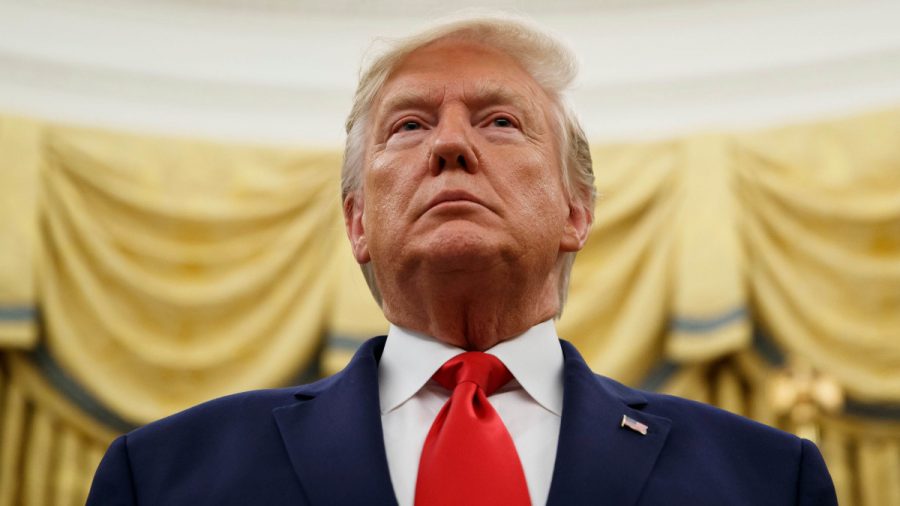Trump impeachment kicks off in light of Ukrainian phone calls
Photo by Alex Brandon (from AP/Shutterstock)
Donald Trump faces backlash from his call to the Ukrainian president, revealed by an anonymous whistleblower.
October 29, 2019
On July 25, 2019, President Donald Trump made a confidential phone call, attempting to coerce Ukrainian president Volodymyr Zelensky into investigating Joe Biden, thus violating U.S. code 30121, “It shall be unlawful for a foreign national, directly or indirectly, to make a [contribution] in connection with a Federal, State, or local election.” With the Executive and Legislative branches preparing for what can only be described as political war, the question is whether the Judicial branch will be dragged into the fray.
With impeachment proceedings being put into place after having invited foreign powers to investigate his 2020 rival, Joe Biden, President Trump has all but stopped giving heed to what Congress is saying. The branches need to work together in order to create an operational government; when one branch breaks away from the others, it causes policy gridlock. President Trump has already tested the limits of the Constitution multiple times—attempting to close U.S. borders, shutting down sections of the government over the border wall, using a national emergency law to redirect money, trying to crush the investigation that had suggested a connection between his 2016 campaign and Russia, and now asking President Zelensky (then openly inviting China to do so when Zelensky refused) to investigate Biden—but now, with the threat of impeachment, his presidency is in legitimate danger.
“There’s not enough evidence for impeachment. Besides, currently, the economy is at an all-time high, unemployment rates are at an all-time low, and the country is the best it’s ever been,” Richard Tanaka (12) said.
But rather than using the courts to put the president in check, speaker Nancy Pelosi, along with the other House Democrats, are moving onward with their impeachment inquiry. Pelosi wishes to avoid involving the third branch, not only because they may slow the process down, but because seeking help from a Supreme Court made primarily of Republicans could make things much more difficult for Democrats.
Ultimately, the Democrats need a series of subpoenas to try President Trump of impeachment-worthy crimes. However risky it is to go to the courts, it may be more dangerous to not do so; Democrats do not make up the majority of the Senate or even the country.
“He’s violated the constitution multiple times and faced no consequences,” Ophelia Decker (9) said, “There’s got to be some Republicans who are worried, right? I mean, this is a constitutional crisis.”
While there are some Republicans who have expressed concern, President Trump holds a heavy influence over their political base, and they may come to support his impeachment only as a last resort—especially because the longer the process takes, the nearer the 2020 election day grows.
Keith Whittington, a Princeton political science professor, claims that “The President has thrown down the gauntlet, dared Congress to impeach and hold him accountable for the claims, and even Republicans in Congress have to think seriously about what the long-term consequences are, allowing a President to make those kinds of claims and stick by them without consequences.”






